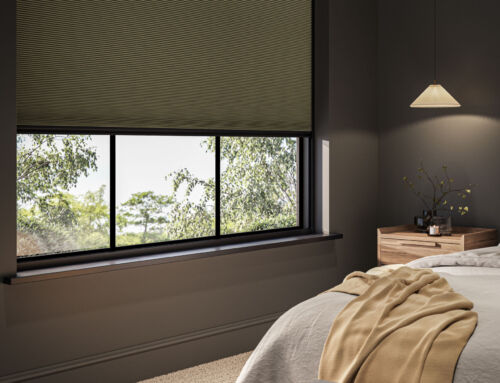Some people are allergic to things that are carried through the air, like pollen or dust. This means that even if they try to avoid exposure, they may never be completely successful.
Many people are unsure of what, specifically, they are allergic to when it comes to pollen from certain plants or other substances.
Here, your trusted blind supplier in Nuneaton will share with you how made-to-measure blinds can help reduce the occurrences of allergies to airborne triggers, as well as some tips on how you should take care of your blinds to help minimise potential allergens:
How Window Blinds Can Help Reduce Allergies Due to Airborne Triggers
If you suffer from allergies, you understand how difficult it can be to avoid triggers that set off your symptoms. However, one place you may not think to look for relief is your window treatments. Believe it or not, window blinds can help reduce allergies due to airborne triggers.
One of the main ways that blinds can help is by acting as a barrier between you and potential allergens. Blinds can help keep pollen and other irritants out of your home, reducing exposure and making it easier to avoid triggers.
In addition, blinds can also help control the amount of dust in your home. Dust is a common allergen that can be difficult to avoid, but keeping your blinds clean can help reduce the dust in your home and make it easier to manage your allergies.
Finally, blinds can also help regulate the temperature in your home. Allergies can be worse in hot or cold weather, so by keeping your home at a comfortable temperature, you can help reduce your symptoms.
If you suffer from allergies, window blinds can be a great way to help reduce your symptoms. By acting as a barrier to allergens and controlling the amount of dust in your house, blinds can help you create a safer, more comfortable environment for yourself.
How to Properly Care for Your Window Blinds to Reduce Allergens
If you have allergies, you know very well that they can be triggered by all sorts of things – including your window blinds. Dust mites, pet dander, and other allergens can collect on your blinds, making them a veritable breeding ground for allergy symptoms.
Fortunately, you can do a few simple things to reduce the allergens in your window blinds. Here are some tips:
- Vacuum regularly. Use the brush attachment on your vacuum cleaner to remove dust and other allergens from your blinds. Do this at least once a week and more often if you have pets or live in a dusty environment.
- Wash regularly. Most blinds can be safely washed with mild soap and water. This will help remove any buildup of allergens, as well as any dirt or grime.
- Use allergen-resistant window treatments. There are several window treatments available that are designed to resist allergens. Look for treatments made of natural fibres like cotton or linen or treated with an allergen-resistant finish.
Following these simple tips can help reduce the allergens in your window blinds and create a healthier environment for yourself and your family.
Conclusion
Window blinds can be an effective way to reduce allergies to airborne triggers. By blocking out dust and other allergens, they can help to create a cleaner, healthier environment inside your home. Additionally, made-to-measure blinds can help to keep pollen and other allergens from entering your home through open windows. By taking these steps, you can help to reduce your allergy symptoms and make your home a more comfortable place to live.
Shady Blinds is a trusted blinds supplier in Nuneaton and nearby areas. Contact us today to learn more about our window treatments!






Leave A Comment